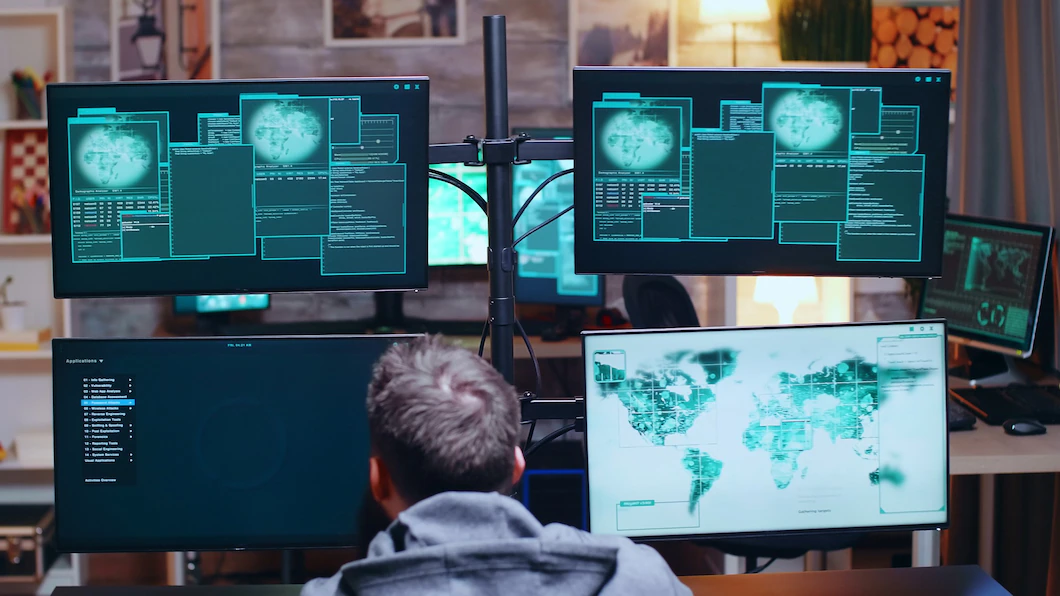Legal And Ethical Considerations In Security Operations
4 Mins Read
Published on: 12 June 2023
Last Updated on: 08 November 2024

toc impalement
The Certificate II in Security Operations is a comprehensive training program that equips individuals with the necessary skills and knowledge to excel in the field of security operations. While the program focuses on technical aspects such as threat assessment, emergency response, and surveillance techniques, it is crucial to highlight the importance of legal and ethical considerations in security operations. This article delves into the legal and ethical dimensions of security operations, emphasizing their significance in maintaining a safe and responsible security environment.
I. Understanding Legal Frameworks
A. Security Legislation And Regulations
Certificate II in Security Operations introduces participants to the legal frameworks governing security operations. It covers essential areas such as relevant legislation, regulations, and codes of practice that security professionals must adhere to. Familiarity with these legal requirements ensures that security personnel operates within the boundaries of the law and conduct their duties responsibly.
B. Rights And Responsibilities
Another crucial aspect of the legal framework is understanding the rights and responsibilities of security personnel. Security professionals are entrusted with protecting individuals, property, and assets. However, they must also be mindful of respecting the rights of individuals and acting in a manner that upholds personal dignity and privacy.
Ii. Ethical Considerations In Security Operations
A. Professional Conduct And Integrity
Certificate II in Security Operations emphasizes the importance of maintaining high standards of professional conduct and integrity. Security professionals are expected to act with honesty, impartiality, and transparency. They should avoid conflicts of interest and conduct themselves in a manner that enhances public trust and confidence.
B. Respect For Diversity
In an increasingly diverse society, security professionals must demonstrate respect for individuals of different backgrounds, cultures, and beliefs. Discrimination and bias have no place in security operations. Training programs stress the need for security personnel to treat everyone fairly and equally, irrespective of their race, ethnicity, gender, or religion.
C. Confidentiality And Information Security
Certificate II in Security Operations underscores the significance of confidentiality and information security. Security professionals often come across sensitive information during their duties, including personal data, security plans, or proprietary information. It is imperative that such information is handled securely, respecting privacy and protecting against unauthorized disclosure.
Iii. Operational Considerations
A. Use Of Force And Defensive Techniques
Security professionals may encounter situations that require the use of force to protect themselves, others, or property. However, it is crucial to strike a balance between the use of force and the principle of proportionality. Certificate II in Security Operations emphasizes the importance of employing only the necessary and reasonable force required to mitigate a threat.
Read Also: Blockchain Security – Common Threats
B. De-escalation Techniques
Conflict management and de-escalation techniques play a significant role in security operations. Security personnel are trained to defuse tense situations, calm agitated individuals, and resolve conflicts peacefully. These techniques help maintain a safe environment and minimize the risk of violence or harm.
Iv. Legal And Ethical Reporting
A. Incident Reporting And Documentation
Certificate II in Security Operations trains individuals on proper incident reporting and documentation procedures. Security personnel must accurately and comprehensively report incidents, maintaining objectivity and clarity. Ethical reporting ensures accountability and provides a reliable record for potential legal proceedings or investigations.
B. Whistleblower Protections
In the context of legal and ethical considerations, it is essential to highlight whistleblower protections. Security professionals who observe illegal or unethical activities within their organizations have the right to report such matters without fear of retaliation. Understanding the protections afforded to whistleblowers promotes a culture of integrity and accountability within security operations.
V. Continuous Professional Development
A. Staying Up-To-Date With Legal And Ethical Standards
Certificate II in Security Operations acknowledges the ever-evolving nature of legal and ethical standards. It emphasizes the importance of continuous professional development to stay updated with the latest legal requirements and ethical guidelines. Ongoing training and education are essential for security professionals to ensure they remain knowledgeable about changes in legislation, regulations, and ethical best practices.
B. Ethical Dilemmas And Decision-Making
Security operations may present individuals with ethical dilemmas that require careful consideration and decision-making. Certificate II in Security Operations provides participants with a framework for evaluating ethical challenges and making principled decisions. This training equips security professionals with the skills to navigate complex situations while upholding legal requirements and ethical standards.
C. Professional Ethics And Boundaries
Maintaining professional ethics and boundaries is crucial in security operations. Security personnel are entrusted with authority and access to sensitive information, requiring them to exercise discretion and professionalism. Certificate II in Security Operations emphasizes the need for security professionals to understand and respect professional boundaries and to avoid situations that may compromise their integrity or the integrity of the security operation.
VI. Conclusion
In conclusion, legal and ethical considerations are integral to the field of security operations. Certificate II in Security Operations recognizes the importance of equipping individuals with the knowledge and skills to navigate the legal framework, uphold ethical standards, and make sound decisions in complex situations. By emphasizing legal compliance, professional conduct, respect for diversity, and confidentiality, the program ensures that security professionals operate ethically and responsibly. Continuous professional development helps individuals stay updated with evolving legal and ethical standards, fostering a culture of integrity and accountability in the field of security operations. By integrating legal and ethical considerations into their practices, security professionals contribute to maintaining a safe and secure environment for individuals, organizations, and communities.
Read Also:


















Comments Are Closed For This Article